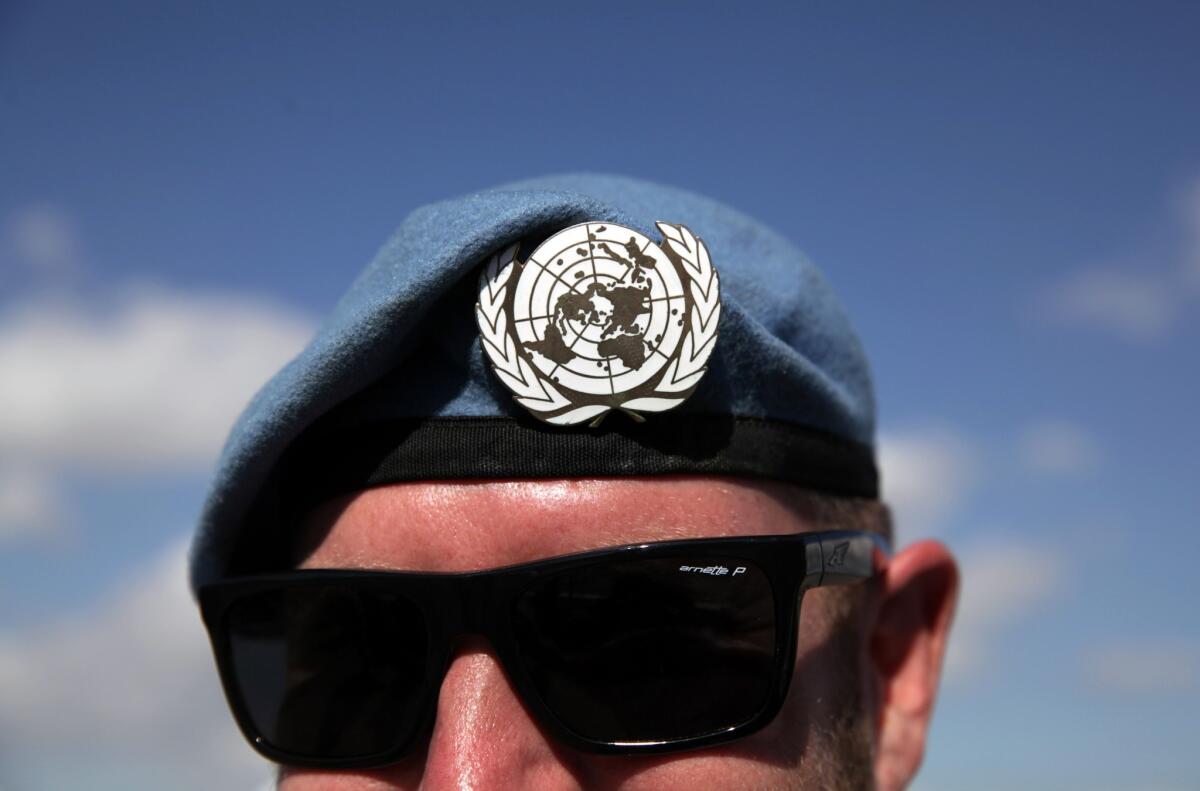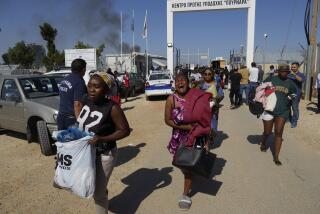Cyprus reunification talks resume after 18-month freeze

ATHENS -- Breaking an 18-month stalemate with the help of the United States, the leaders of Cyprus’ divided Greek and Turkish enclaves resumed talks Tuesday aimed at reunifying the Mediterranean island and ending one of Europe’s most enduring conflicts.
The renewed negotiations follow months of high-level back-channel diplomacy by the U.S., including an intervention by Vice President Joe Biden over the weekend to nudge the island’s rival leaders to accept a road map for the negotiations.
On Tuesday, Lisa Buttenheim, the resident United Nations envoy on the island, read out details of that agreement, setting down the boundaries for the talks.
“The leaders expressed their determination to resume structured negotiations in a results-oriented manner,” Buttenheim said.
Greek Cypriot leader Nicos Anastasiades and his Turkish Cypriot counterpart, Dervis Eroglou, made no public statements during the nearly 90-minute ceremony that reopened the talks. Instead, the two men departed shortly afterward, leaving their aides behind at an abandoned airport north of Nicosia to sort out the minutiae of a potential deal.
Cyprus has been divided since 1974, when Turkish forces invaded the island in the wake of a Greek-inspired coup in Nicosia. Details of the joint declaration leaked to Cypriot media over the weekend showed that the U.N.-sponsored peace plan envisaged the creation of a loose federation, allowing the Greek and Turkish sides to continue running their domestic affairs independently.
The U.S. has long viewed a Cyprus settlement as a bulwark against wider unrest in the Middle East. Washington intervened with new energy into the peace process five months ago when it became clear over the summer that exploiting large deposits of gas under the Mediterranean Sea would require broader regional reconciliation among Israel, Turkey and Cyprus.
Experts suggest the cheapest and most efficient way of exporting the reserves to the West would be through an underwater pipeline to Turkey, a move that would lessen Europe’s gas dependency on Russia.
A Cyprus settlement would also boost the island’s crisis-hit economy and improve Turkey’s chances of joining the European Union, which is Ankara’s main source of investment, finance and export markets.
Endless rounds of talks have failed to heal the island’s 40-year-old division. The last talks were suspended in 2012 because of disagreements over power-sharing and land swaps.
Carassava is a special correspondent
More to Read
Start your day right
Sign up for Essential California for news, features and recommendations from the L.A. Times and beyond in your inbox six days a week.
You may occasionally receive promotional content from the Los Angeles Times.






